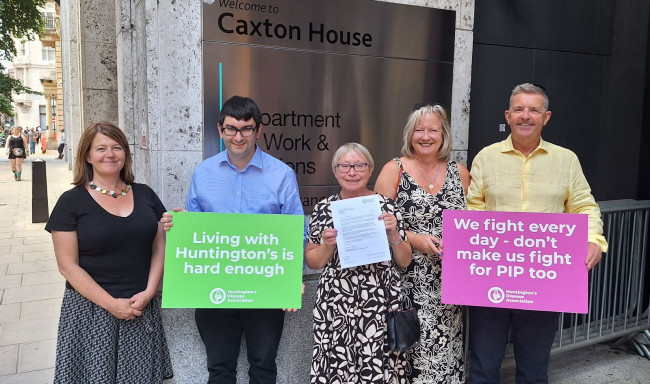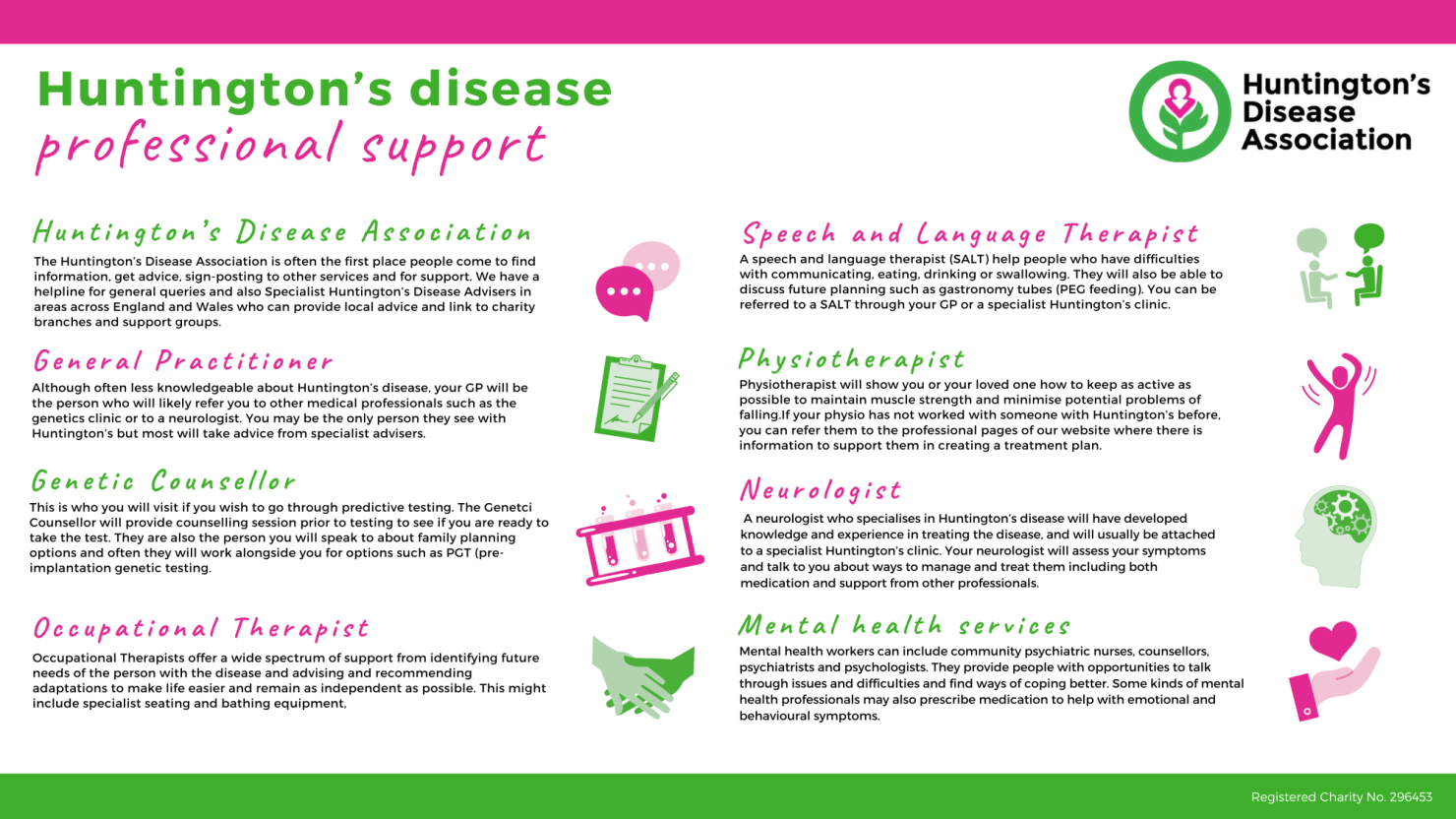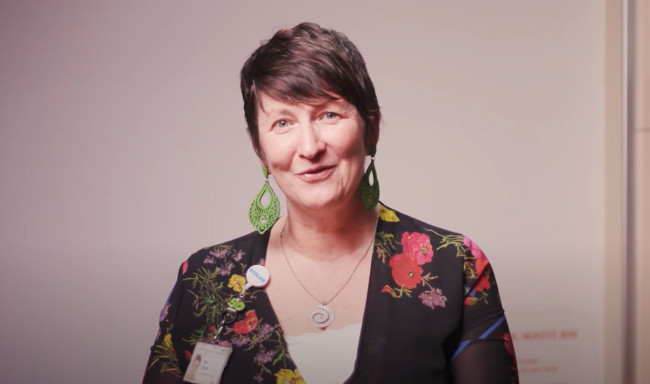This month we have been talking about professional support and interventions.
Professional intervention plays a key part in someone's Huntington's journey and getting the right support at the right time can make a big difference. From utilising our Youth Engagement Service (HDYES) for young people in Huntington's families, Genetic Counsellors for testing and family planning or Occupational Therapists for adapting to life with Huntington's. Never feel like you can't ask for help.
If you are unsure what professional you might need for yourself or your loved one, you can ask your local Huntington's adviser or call our helpline on 0151 3315444.
We have put together this handy factsheet for you to download. You can share it on your social media or with friends, family or employers.
How the Huntington's Disease Association can help you
Guides and resources
A story from the community
Your questions answered by healthcare professionals
We asked the community what questions they would like to ask a Neuropsychiatrist and an Occupational Therapist. You can read the Q&As below.
Symptoms of Huntington's disease and who can help
Huntington's disease affects people in three main ways. It affects people's mind, movement and mood. Below you can see some of the symptoms people may experience and what healthcare professionals you may need.
Mind
Below are some of the symptoms that you or the person you care about may start to notice.
- Difficulty in switching attention
- Inability to concentrate on more than one thing at a time
- Delayed processing skills
- Loss of drive, initiative and spontaneity
- Problems with recognition and recall
- Impulsive behaviour
- Inability to read facial expression
- Impaired executive functioning
Who can help?
There are lots of different people who are helpful at this stage of your Huntington's journey including the Huntington's Disease Association and your GP for referrals.
- Psychologist
- Counsellor
- Neuropsychologist
- Psychiatrist
- Specialist Huntington's service
- Social care
Symptom management
- Medication
- Cognitive Behavioural Therapy (CBT)
- Complementary Therapies
- Support worker/care package
- Aide memories
- Alarms
- De-escalation techniques
Movement
Below are some of the symptoms that you or the person you care about may start to notice.
- Chorea or other involuntary movements
- Slowness of movement
- Muscle spasms
- Rigidity
- Problems with speech
- Difficulty swallowing
Who can help?
There are lots of different people who are helpful at this stage of your Huntington's journey including the Huntington's Disease Association and your GP for referrals.
- Neurologist
- Speech and Language Therapist (SALT)
- Dietitian
- Physiotherapist
- Occupational Therapist
- Wheelchair services
- Specialist Huntington’s disease services
- Social care
Symptom management
- Medication
- Aids and adaptations
- Specialist seating, beds and mattresses
- Care package
- Massage and complementary therapies
- Continuous assessment
Mood
Below are some of the symptoms that you or the person you care about may start to notice.
- Irritability
- Aggression
- Obsessive-compulsive disorders
- Anxiety and apathy
-
Depression
Who can help?
There are lots of different people who are helpful at this stage of your Huntington's journey including the Huntington's Disease Association and your GP for referrals.
- Community mental health team
- Psychiatrist / Community psychiatric nurse
- Psychologist
- Specialist Huntington's service
- Social care
Symptom management
- Medication
- Structure and routine
- Environmental enrichment








